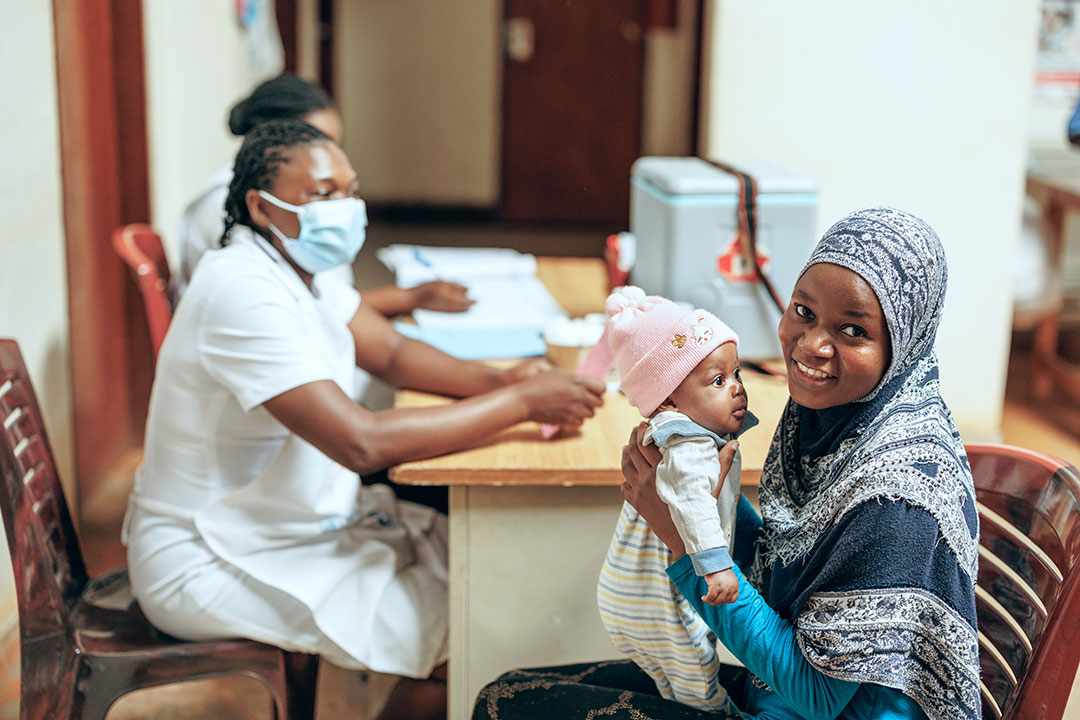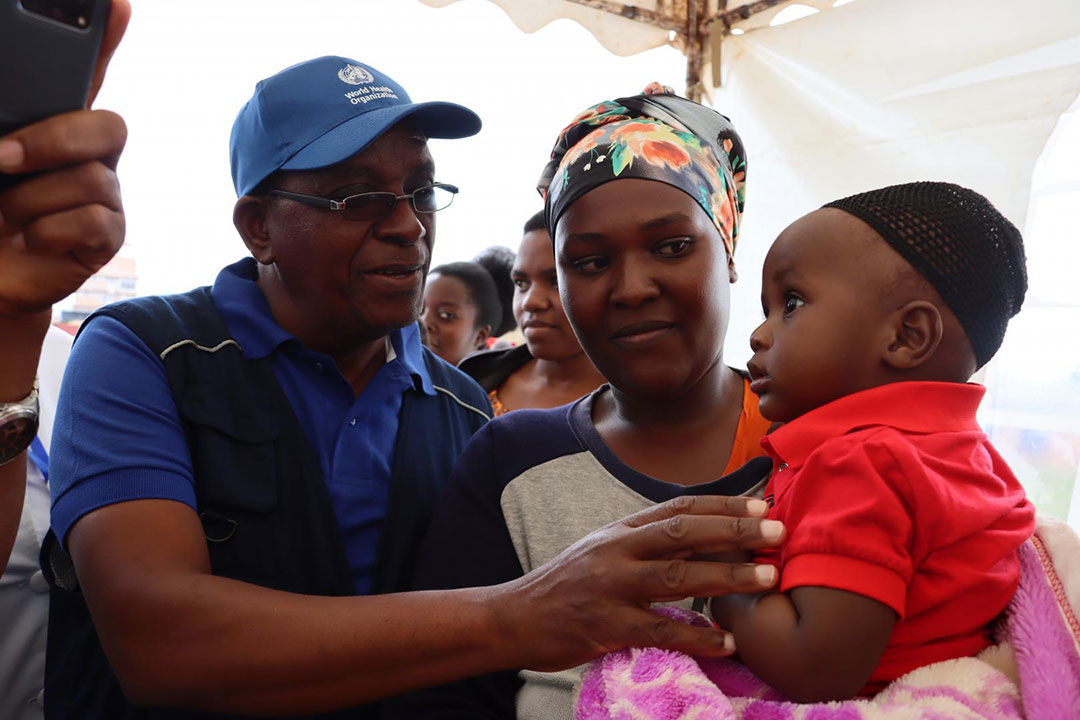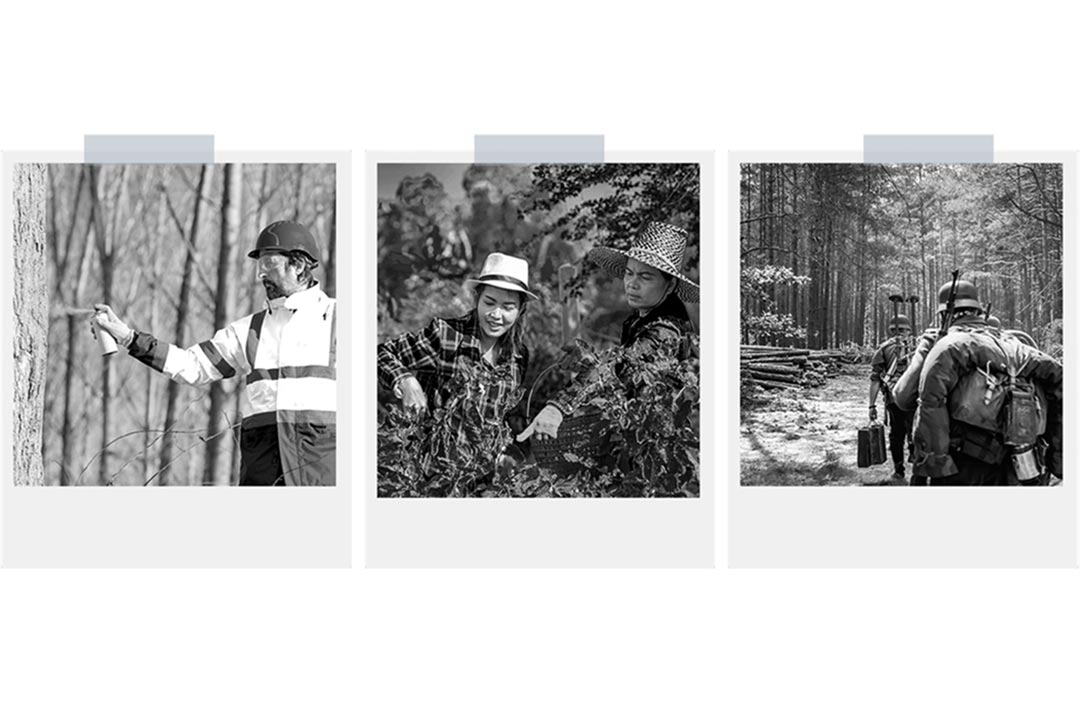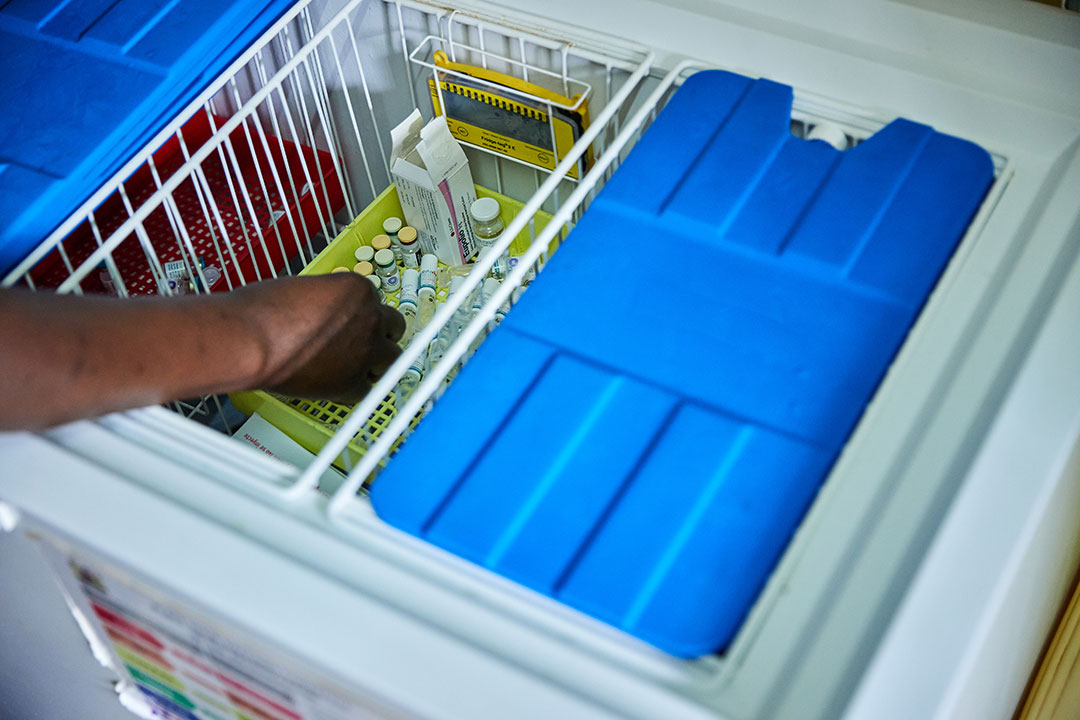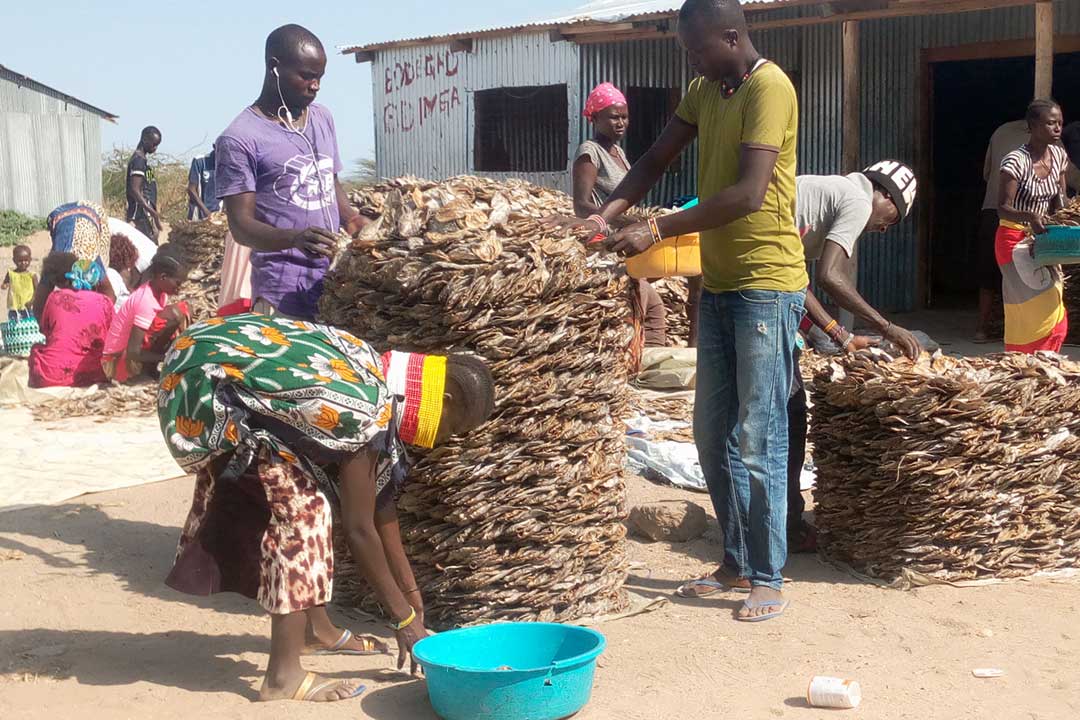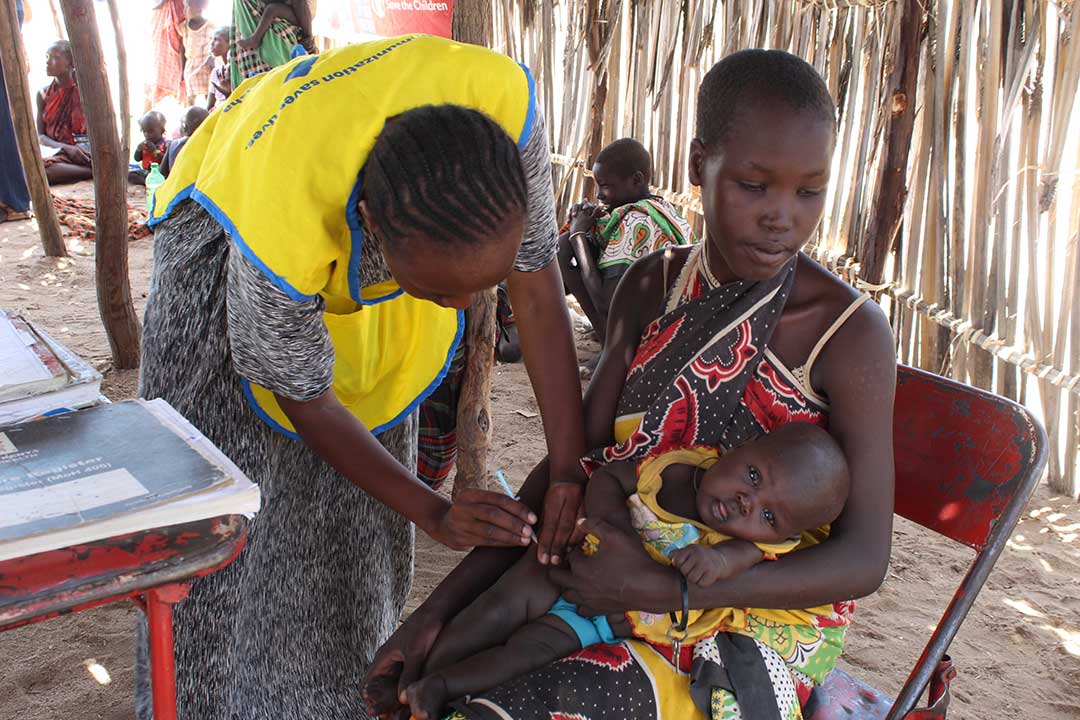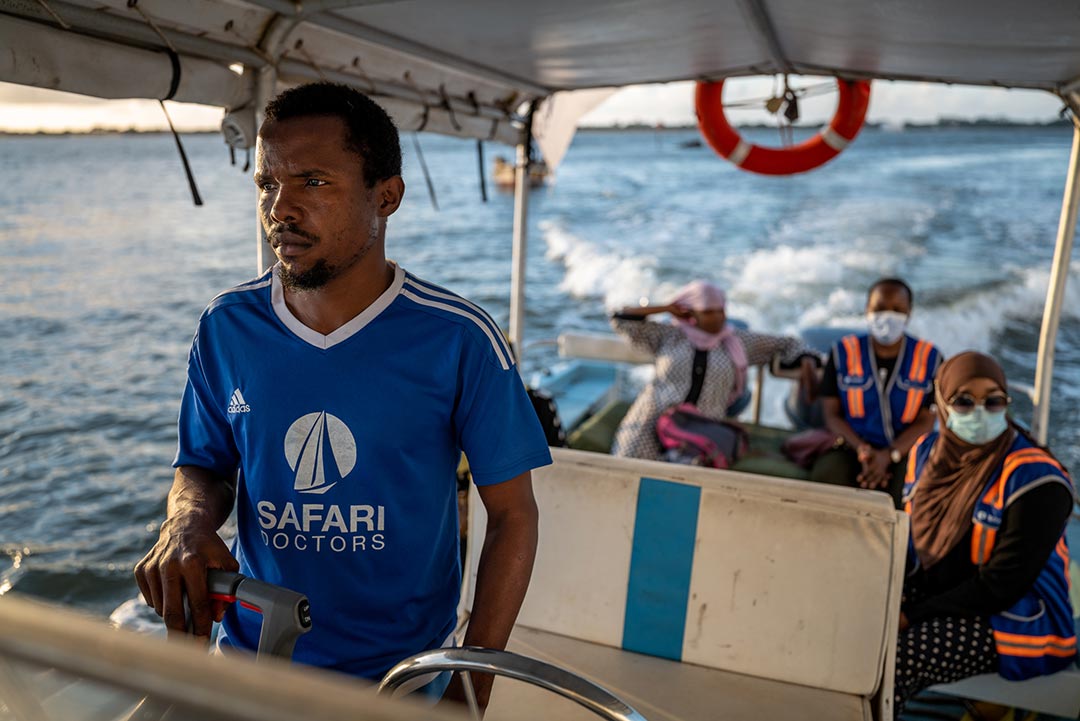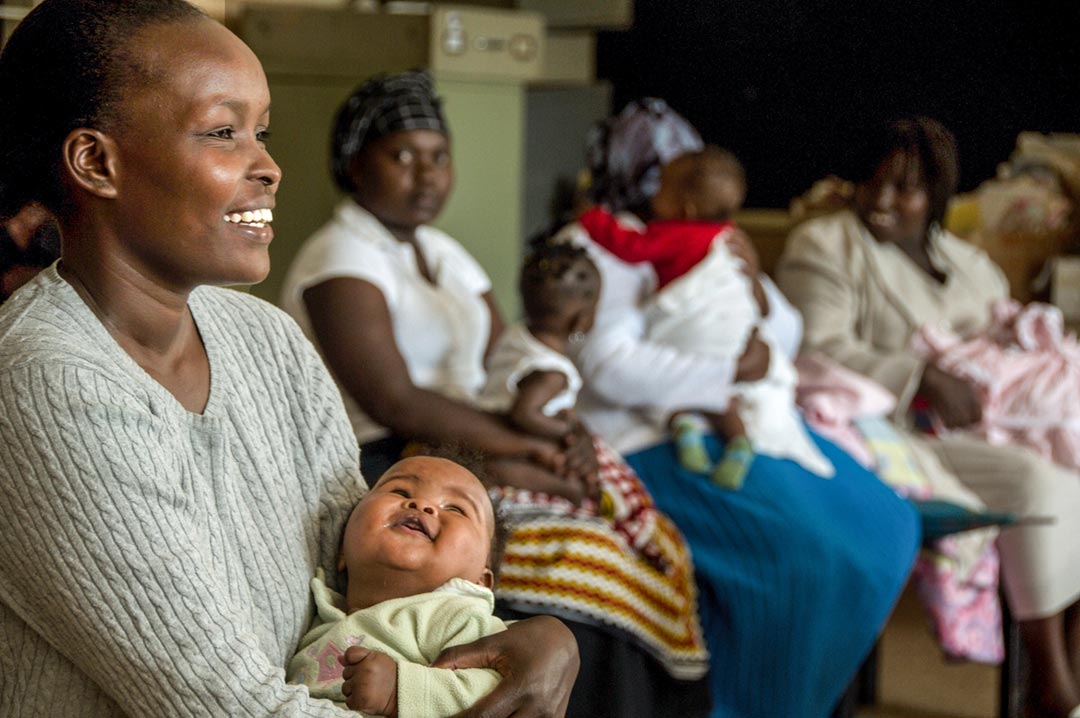Traditional governance systems help turn the tide against COVID-19 in Kenya
A century-old system of governance has helped keep their land plentiful and their villages peaceful. Now elders in Isiolo County, central Kenya, are using the system to keep their villages free of COVID-19.
- 18 November 2021
- 4 min read
- by Abjata Khalif
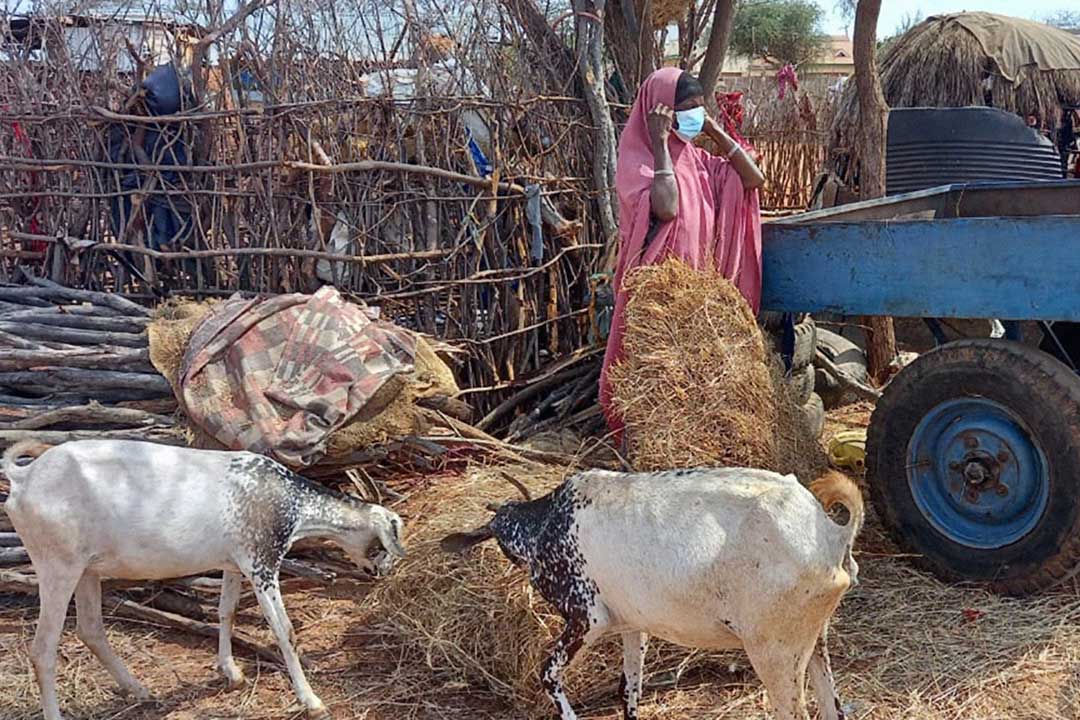
It is early morning in Garbatulla and traditional supervisors from the local traditional governance unit conduct their routine check on how the community is using water and pasture for their livestock.
“We have lost many people to COVID-19 in Isiolo County. Members of the traditional system met and deliberated our role in fighting the pandemic. The promotion of COVID-19 vaccination started from that meeting.”
The traditional resource management mechanism is popular in the arid and semi-arid Isiolo County, which is prone to climatic vagaries like prolonged drought, flash floods and the emergence of strange diseases.
On this particular morning, the traditional supervisors have an additional task: sharing COVID-19 information and guidance on how the community can take advantage of the vaccine, supplied to the Kenyan government through the COVAX Facility.
In the past, traditional supervisors were charged with tasks such as checking water levels for both human and livestock use and monitoring grazing patterns, helping them to zone the pasture land for rotational grazing.
Rotational grazing helps preserve the pasture zone so the community can continue to herd their livestock during drought periods, while they wait for the seasonal rains to come.
Now, before starting their routine checks, the supervisors visit each traditional homestead and watering point to ask whether community members know of the availability of the COVID-19 vaccine and what they are doing to receive the jab. They share when and where community members can be vaccinated and compile lists of those who are eligible for the jab and those who have been vaccinated.
The traditional system, in a bid to mobilise the community and promote uptake of the vaccine, decided to prepare traditional guidelines for all supervisors – elders, women and youth working with the unit.

Credits:
The guidelines highlight the seriousness of COVID-19, underlining the responsibility the community has to contain it. They also put emphasis on COVID-19 vaccination and containment measures. This information sharing is the first activity that the traditional system supervisors must undertake when visiting watering points, grazing zones and homes.
“Our traditional system is a hundred years old and we address many communal issues like resource management and sharing under it. For COVID-19 we decided to take the lead in mobilising our community to take COVID-19 vaccines,’’ Hassan Wario, an elder and member of the traditional system in Garbatula town, says.
Have you read?
Mr Ilalo Hussein, a member of the traditional system, agrees: “We have lost many people to COVID-19 in Isiolo County. Members of the traditional system met and deliberated our role in fighting the pandemic. The promotion of COVID-19 vaccination started from that meeting.’’
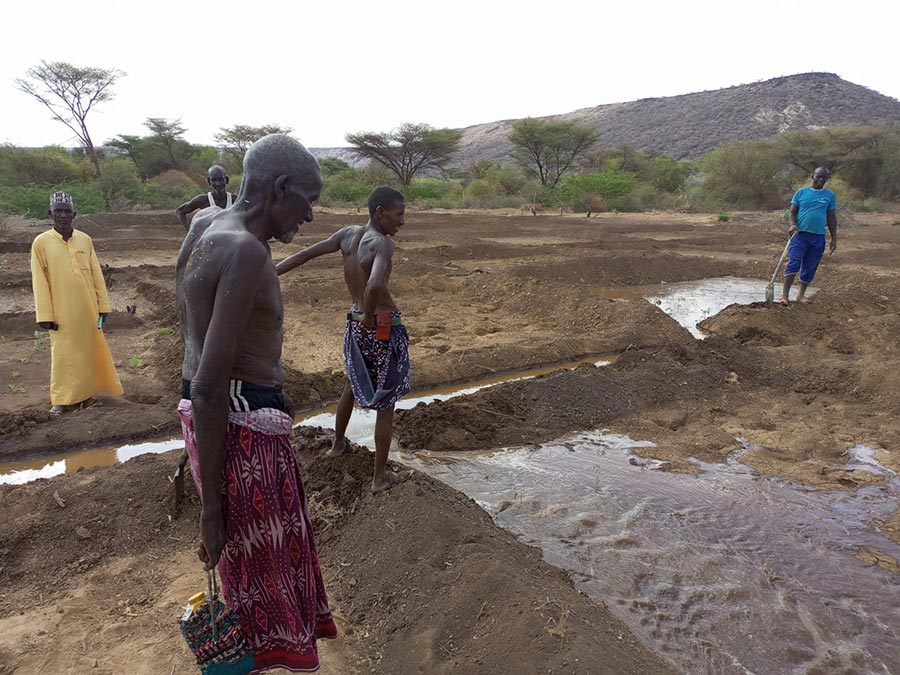
Credits:
Mr Eressa Fayo, a traditional system supervisor, explains the process.
“The first thing I do is to educate the community and try my best to give them answers to alleviate any concerns they may have about the COVID-19 vaccine. I also link them to the dispensary to get the jab and compile a list of community members who are ready to take the jab. So far, 95% of the people I cover have taken the jab. The remaining 5% are mobile, moving from one village to the next; they will be covered in the next five months.”
The traditional supervisors don’t want to stop with COVID-19, and have decided to continue to educate the community on health matters even after COVID-19 has been contained.
“The COVID-19 pandemic has expanded the scope of work done by the traditional system,” says Fayo. “From now, the system will undertake health education, monitoring, surveillance and mobilisation in areas under their jurisdiction.”
Apart from natural resource management and sharing, the traditional system undertakes conflict mitigation and reconciliation, mediating family disputes and tackling gender-based violence through a traditional court called KOOR.
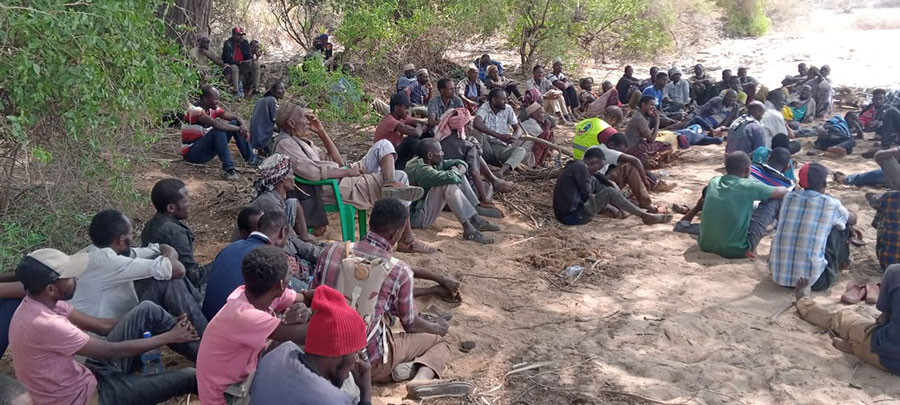
Credits:
KOOR is a special traditional sitting where cases are heard by reputable elders and all parties are called to give their testimony and evidence
The verdict made by the traditional KOOR system is enforced by traditional supervisors and other enforcers and a report on enforcement is later presented to the KOOR.
Before each KOOR session, the traditional judges ask the audience, the accused and the accuser if they have taken the COVID-19 vaccine and if not, what stopped them from having the jab.
They also inquire as to the kind of COVID-19 vaccine information the parties received from the traditional supervisors in their villages or at grazing and watering points.
More from Abjata Khalif
Recommended for you
